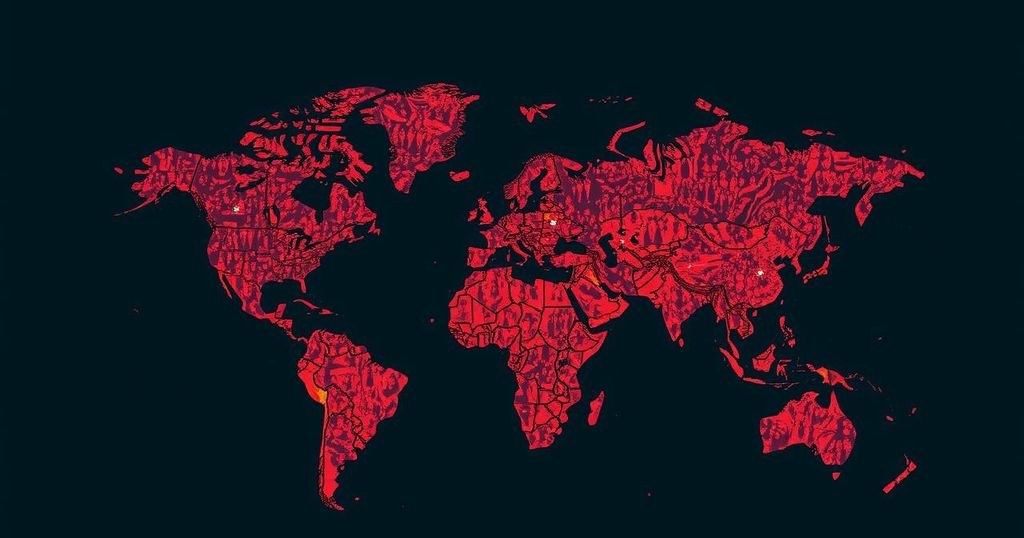Disinformation is a critical threat to humanitarian efforts of the World Food Programme in the DRC, where over 6.5 million individuals are internally displaced. Wilfred Nkwambi explains that combating misinformation is vital for maintaining safe access to affected communities. Initiatives include community engagement, monitoring social media for false information, and training local influencers and civil society leaders. The WFP focuses on effective communication strategies to foster trust and ensure successful humanitarian operations amid ongoing conflicts.
Disinformation poses a significant threat to humanitarian operations in the Democratic Republic of the Congo (DRC), where the World Food Programme (WFP) is striving to alleviate the suffering of over 6.5 million internally displaced individuals. Wilfred Nkwambi, head of WFP’s northeastern Goma area office, highlights that combating misinformation is crucial for maintaining safe and efficient aid distribution. In regions plagued by conflict, WFP collaborates with various stakeholders, including non-state armed groups, to navigate safety concerns and secure essential access. The challenge of disinformation—where false information is deliberately disseminated—has escalated in the DRC, primarily through social media platforms. This disinformation can directly jeopardize food distribution efforts, as rumors may diminish the credibility of humanitarian organizations, leading to increased hostility towards aid workers. WFP’s presence is increasingly scrutinized, demanding enhanced transparency and community engagement. For example, the introduction of unfamiliar food items, such as imported wheat, has faced resistance from local populations accustomed to maize flour, which necessitated community cooking sessions to foster better acceptance. To counteract misinformation, WFP has adopted proactive communication strategies. Monitoring social media is essential for identifying and addressing false narratives about its operations. Furthermore, the organization partners with local media, engages youth groups, and conducts outreach campaigns to disseminate accurate information and build community trust. Training programs for local leaders and WFP frontline staff are integral in ensuring that all parties are well-informed about WFP’s mission and activities, thereby reinforcing the safety of humanitarian efforts in the region.
The Democratic Republic of the Congo is experiencing one of the most severe internal displacement crises globally, exacerbated by ongoing conflict and the proliferation of non-state armed groups primarily in the eastern provinces. Amidst this turmoil, the dissemination of disinformation is emerging as a formidable barrier to humanitarian access. As the World Food Programme seeks to provide food and support to displaced populations, the accuracy and reliability of information are paramount to the organization’s operational effectiveness and the safety of its personnel. The significance of combating misinformation cannot be understated, as it threatens the very fabric of trust and cooperation necessary for successful humanitarian interventions.
In conclusion, disinformation significantly undermines the World Food Programme’s operational capacity in the DRC by obstructing access and threatening security for humanitarian workers. Effective communication, community engagement, and collaboration with local influencers are essential strategies employed by WFP to counteract misinformation. By fostering a thorough understanding of WFP’s objectives and adapting to the local context, the organization aims to enhance trust and facilitate the effective distribution of aid to those in dire need.
Original Source: www.wfp.org






